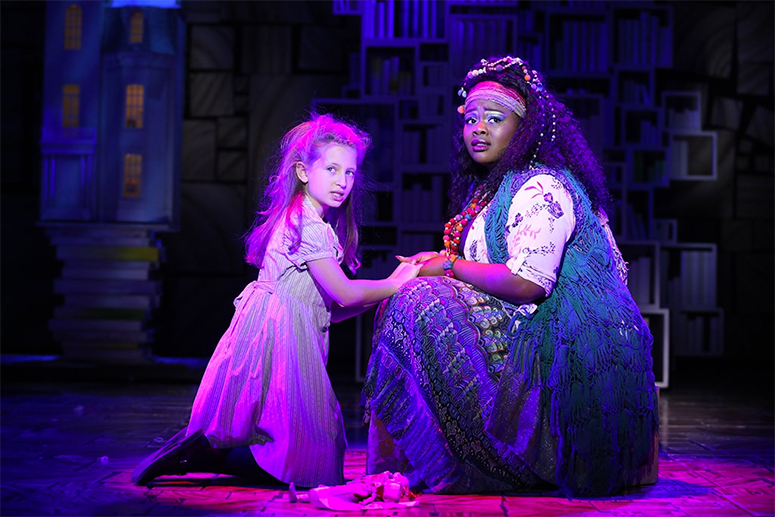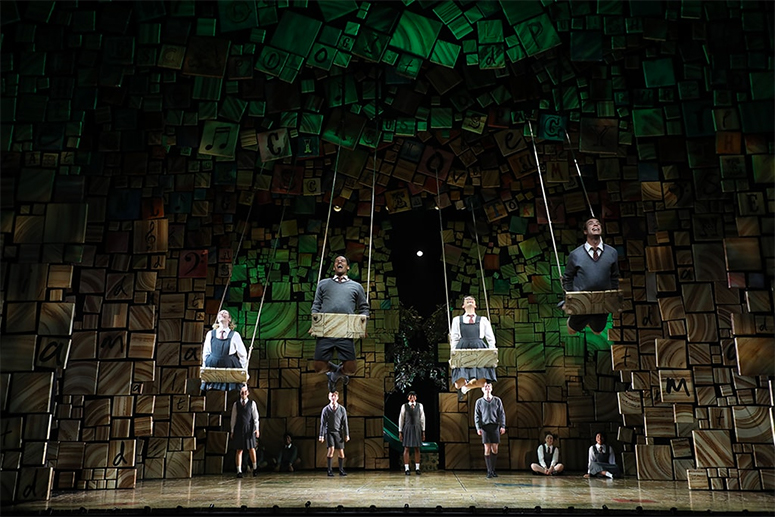The future is female in ‘Matilda The Musical’
Michelle Obama’s famous quote, “When they go low, we go high,” has become a slogan of power for those who have risen above cruelty. For a black woman living in a country that still systemically discriminates based on race and gender (among other things), it is the ultimate power move.
To go high when everyone goes low is to set aside the inevitable hurt and anger that comes from bullying, and to react in such a way that it moves things forward, instead of fueling an already very angry fire. Michelle Obama’s words are reflected so greatly in Matilda The Musical — proving, once again, that the future is female.
It’s a powerful sight, indeed: a young girl asserting her place in the world, rising above all of the cruelty the world has given her.
Matilda is a child, but her wisdom, patience and vigor parallel — surpass, even — those of an adult’s. And it is with these traits that she wields her power — power that touches the audience’s hearts and teaches us that there is beauty in child-like innocence and bravery.
Roald Dahl’s novel is given new life by Tim Minchin’s compositions for Matilda The Musical. And it is an enjoyable spectacle from start to finish.
The beautifully crafted stage design by Rob Howell makes for an added layer of complexity in the choreography. Throughout the show, the stage moves and flows with the dances and songs, creating a harmony in the movement that makes the storytelling much more engaging. But beyond the marvelous choreography and songs is a commentary on issues reflecting the real world.

We see Matilda’s mom and dad who, in contrast to many helicopter parents who see their children as faultless miracles, see Matilda as nothing but a mistake.
When Matilda goes to school, she’s met with the terror of a headmistress in the form of Miss Trunchbull, who thinks that in order to impart knowledge, children (“maggots,” as she likes to call them) have to be broken first. Matilda, along with the other children, live through these inhumane school conditions — and it is amazing how they don’t lose the humor and bravery befitting children.
It’s also wonderful to see children who have been beaten and bruised in more ways than one stand up for themselves, even more so that their revolt is a display of the naughtiness innate in children.
In the show, a small thing like eating a piece of cake, or covering up for your friend, or putting a lizard in the headmistress’ glass of water, is a show of solidarity built from the children’s shared distress and trauma.

We see these children powering through every bad thing, never losing hope that things will get better someday. In the song When I Grow Up, we see starry-eyed kids with their own visions of what growing up entails — eating sweets every day, sleeping late, watching cartoons all day.
The show, even with its deeper nuances and underlying commentaries, never fails to depict children as children — wondrous and optimistic and silly; and with the swing sets that accompany this scene — children literally soaring high above the stage — we are seeded with hope that everything will be all right in the end.
The best part of the musical, though, is how Matilda finds comfort in the arms of two women. First, in the librarian Mrs. Phelps, who indulges her in her storytelling, always ready to listen to Matilda’s stories that don’t see the light of day when she’s at home. And second, with Miss Honey, her homeroom teacher, who, despite her own troubles goes beyond what is expected of her in order to teach the children.
They say it takes a village to raise a child, but in Matilda The Musical, there is no need for a crowd of people to uplift Matilda — only two women who have their own way of helping Matilda carve her own place in the world.


